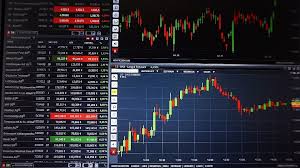
Understanding Forex Trading: Meaning, Strategies, and Insights
Forex trading, often referred to as foreign exchange trading or currency trading, is the process of buying and selling currencies on the global market. It is one of the largest and most liquid financial markets in the world, with a daily trading volume exceeding $6 trillion. This vast market presents numerous opportunities for profit for traders who understand the fundamental principles and dynamics of currency trading. The significance of Forex trading is immense, as it facilitates international trade and investment while providing liquidity and opportunities for speculation. To illustrate the diversity of the Forex market, one can explore various platforms, including forex trading meaning Argentina Brokers, which cater to traders in specific regions.
The Basics of Forex Trading
The Forex market operates 24 hours a day, five days a week, allowing traders to engage in currency trading at any time. Currency pairs are at the heart of Forex trading, as currencies are traded in pairs—for example, EUR/USD represents the Euro against the US Dollar. The first currency in the pair is known as the base currency, and the second is the quote currency. Traders speculate on the price movement of these pairs: they buy if they believe a currency will strengthen and sell if they think it will weaken.
Forex trading operates on several key principles:

- Leverage: Forex brokers often offer significant leverage, allowing traders to control a larger position than their initial investment. This can magnify both profits and losses.
- Margin: The margin is the amount of money required to open a leveraged position. Understanding margin requirements is crucial for managing risk.
- Bid and Ask Prices: The bid price is what buyers are willing to pay for a currency, while the ask price is what sellers are asking. The difference between these two prices is known as the spread.
- Market Analysis: Successful traders use various forms of analysis, including technical analysis, which involves studying price charts, and fundamental analysis, which considers economic indicators and news events.
The Importance of Forex Trading
Forex trading offers several advantages, making it appealing to a wide range of participants, including individual traders, institutional investors, and governments. Some of the key benefits include:
- Liquidity: The Forex market’s immense size ensures high liquidity, meaning traders can enter and exit positions with ease, even for large trades.
- Potential for Profit: With the right strategies and market knowledge, traders can potentially earn substantial profits in various market conditions.
- Diverse Opportunities: The market offers a wide array of currency pairs, enabling traders to explore opportunities based on global economic trends.
- Accessibility: The Forex market is accessible to anyone with an internet connection, making it easier for individual traders to participate.
- Flexibility: The 24-hour nature of Forex trading allows traders to operate according to their schedule, making it a versatile option for many.
Forex Trading Strategies
Developing a sound trading strategy is essential for success in Forex trading. Here are a few common strategies used by traders:

- Scalping: This strategy involves making numerous small trades throughout the day to capitalize on minor price movements. Scalpers seek quick profits from small market fluctuations.
- Day Trading: Day traders open and close positions within the same trading day, avoiding overnight risk. They rely on intraday price movements and technical analysis for their trades.
- Swing Trading: Swing traders hold positions for several days or weeks, aiming to profit from potential shifts in market trends. This strategy requires a good understanding of market patterns.
- Position Trading: This long-term strategy involves holding positions for weeks, months, or even years, based on fundamental analysis and economic indicators.
Risks and Challenges in Forex Trading
While Forex trading offers numerous advantages, it is not without risks. Traders should be aware of the following challenges:
- Market Volatility: Currency prices can fluctuate significantly due to economic news, geopolitical events, or changes in market sentiment, leading to potential losses.
- Leverage Risks: While leverage can amplify profits, it can also magnify losses. Traders must manage their leverage carefully to avoid significant drawdowns.
- Psychological Factors: Emotions can heavily influence trading decisions. Fear and greed can lead to impulsive actions, resulting in losses.
- Lack of Regulation: Not all Forex brokers are regulated, leading to potential risks associated with fraud or unethical practices. It is crucial to choose a reputable broker.
Conclusion
Forex trading is a dynamic and complex field that requires knowledge, practice, and discipline. Understanding the meaning and mechanics of Forex trading is the first step toward becoming a successful trader. By employing effective strategies and managing risks, traders can navigate the exciting world of foreign exchange. Furthermore, with the proliferation of online platforms and resources, including those offered by brokers in specific regions like Argentina, aspiring traders have greater access to the tools necessary for success.
As you embark on your Forex trading journey, remember that continuous learning and adaptability are keys to thriving in this ever-evolving market. Whether you are a beginner or an experienced trader, staying informed about global economic trends, market developments, and trading strategies will help you make sound trading decisions and ultimately achieve your financial goals.
